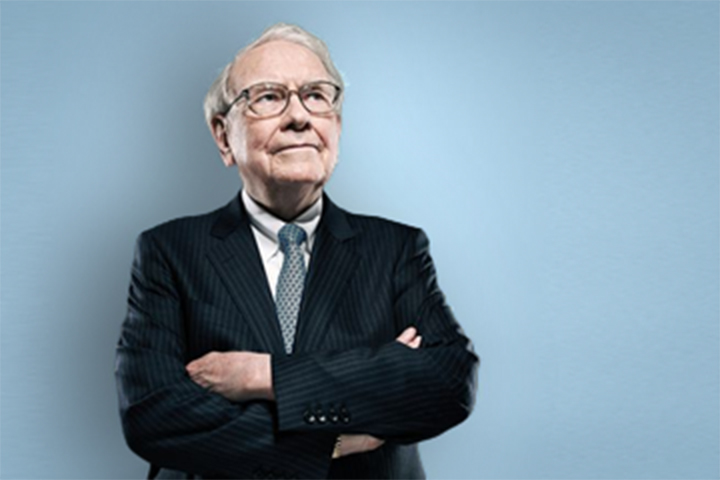The halo effect: why we are buying the shares of Buffett, Bezos and Musk

Keytrade Bank
keytradebank.be
May 10, 2019
(updated August 05, 2022)
4 minutes to read
The halo effect is a phenomenon whereby powerful impressions influence our judgement of people or companies. The phenomenon was first described by psychologist Edward Thorndike. He conducted research on American soldiers during the First World War. He noticed that soldiers who received a strong score for a certain competence, such as endurance or strength, from their commanders, also got high marks for qualities their commanders could not easily or objectively evaluate, such as leadership. Officers assumed that soldiers with an attractive appearance and good posture would also shoot more accurately, brush their shoes more thoroughly and even have more musical aptitude.
This halo effect permeates various aspects of our daily lives. For example, advertisers pay heroic actors and beautiful actresses a lot of money to promote products they hardly have any knowledge about. We have positive thoughts about the actor, because he looks incredibly handsome, or about the actress because she plays the heroine in a film. We therefore also assume that they know a great deal about shaving foam or life insurance.
Oprah's law
In the investment world, this halo effect can take several forms. A halo may form around a company's brand name or products, or a CEO, or it may simply develop around a company's profit and price movements. A positive halo may mean that shares exceed their real value. A negative halo may lead to shares being cheaper than their real value.
That effect was clearly to be seen in the share price of Weight Watchers a few years ago. When TV presenter Oprah Winfrey announced that she had bought Weight Watchers shares, the price shot into the stratosphere. In barely two days, the company's market value increased by no less than 700 million dollars. Although Oprah Winfrey is undeniably a very talented presenter, actress and producer, she is not really known as an investment expert, and yet the halo effect more than doubled the share price in just a few days.
What about the CEO's influence?
In recent years, Apple has been one of the companies to benefit greatly from the halo effect. Apple is an exceptional example of how the effect works: consumers who bought an iPod, then continued to shop for iPhones, iPads and MacBooks. Apple fans even brought their sleeping bags to camp outside Apple Stores at new product launches. The brand therefore generated a huge amount of buzz. For a long time, Apple had Steve Jobs as a visionary leader with a strong personality. The fact that Apple's products sold well in turn contributed to the company's market value. And the fact that the share price rose attracted even more investors. The halo effect does not make things easier for investors. As an investor, you wish to make rational investment decisions, and disconnect a share's performance from, say, the perception of a company's CEO or its ‘coolness factor’. People are right to think that (former) leaders such as Steve Jobs, Warren Buffet (Berkshire Hathaway), Jeff Bezos (Amazon), Elon Musk (Tesla), Jack Ma (Alibaba) and Bill Gates (Microsoft) have a significant impact on the companies they manage(d). However, the effect that a CEO has on a company is perhaps less than most people believe. Research* focusing on 500 CEOs that managed at least 2 large companies has shown that the strength of the relationship between the company's success and the qualities of the CEO is only limited. A survey** of the most admired companies by Fortune magazine even showed that over a period of 20 years, companies with poor ratings achieved a higher return on equity than the most popular companies.
*http://faculty.chicagobooth.edu/marianne.bertrand/research/papers/managing_style_qje.pdf
**https://papers.ssrn.com/sol3/papers.cfm?abstract_id=1540757
Tips on how to circumvent the halo effect as an investor
Conduct your own analysis, or rely on the market experience of fund managers. Do not buy stocks simply because a well-known investor invests in them.
- Cast a critical eye on tips from people who call themselves experts.
- Be extra careful as regards companies that are being touted as the new Apple or the new Amazon.
- Do not forget that a company with a poor business model will not always succeed, no matter how talented its (new) management may be.


